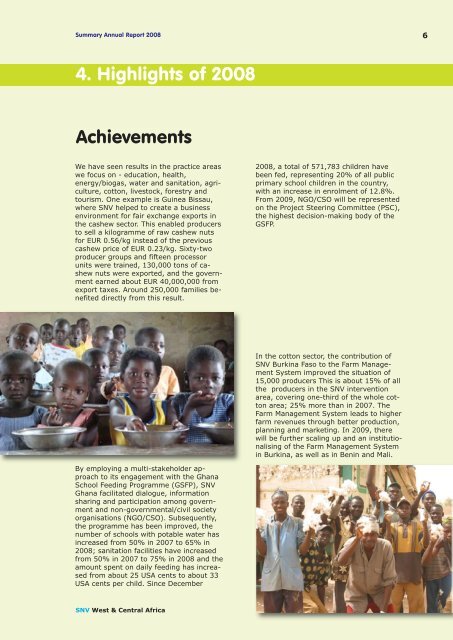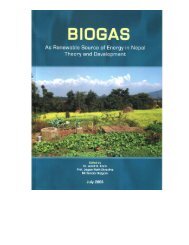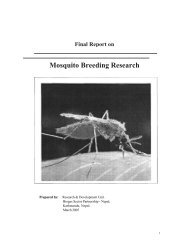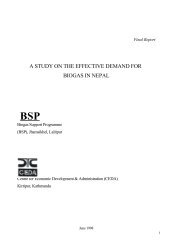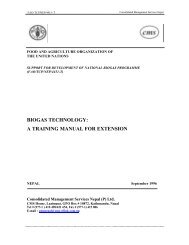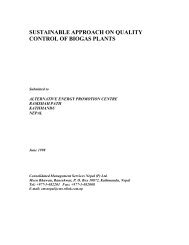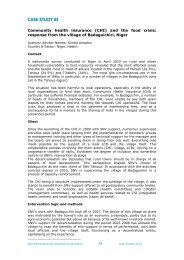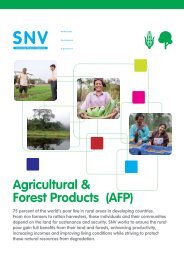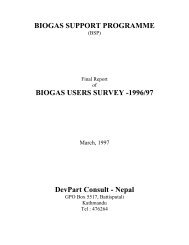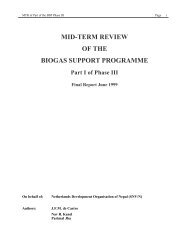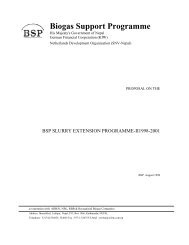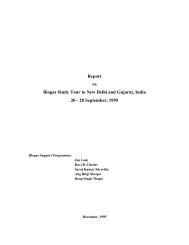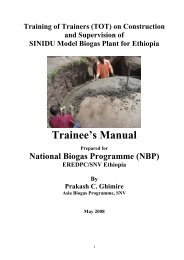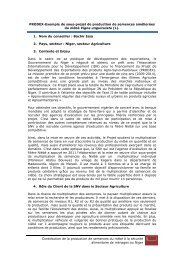download (pdf, 3MB) - SNV
download (pdf, 3MB) - SNV
download (pdf, 3MB) - SNV
You also want an ePaper? Increase the reach of your titles
YUMPU automatically turns print PDFs into web optimized ePapers that Google loves.
Summary Annual Report 2008 6<br />
4. Highlights of 2008<br />
Achievements<br />
We have seen results in the practice areas<br />
we focus on - education, health,<br />
energy/biogas, water and sanitation, agriculture,<br />
cotton, livestock, forestry and<br />
tourism. One example is Guinea Bissau,<br />
where <strong>SNV</strong> helped to create a business<br />
environment for fair exchange exports in<br />
the cashew sector. This enabled producers<br />
to sell a kilogramme of raw cashew nuts<br />
for EUR 0.56/kg instead of the previous<br />
cashew price of EUR 0.23/kg. Sixty-two<br />
producer groups and fifteen processor<br />
units were trained, 130,000 tons of cashew<br />
nuts were exported, and the government<br />
earned about EUR 40,000,000 from<br />
export taxes. Around 250,000 families benefited<br />
directly from this result.<br />
2008, a total of 571,783 children have<br />
been fed, representing 20% of all public<br />
primary school children in the country,<br />
with an increase in enrolment of 12.8%.<br />
From 2009, NGO/CSO will be represented<br />
on the Project Steering Committee (PSC),<br />
the highest decision-making body of the<br />
GSFP.<br />
In the cotton sector, the contribution of<br />
<strong>SNV</strong> Burkina Faso to the Farm Management<br />
System improved the situation of<br />
15,000 producers This is about 15% of all<br />
the producers in the <strong>SNV</strong> intervention<br />
area, covering one-third of the whole cotton<br />
area; 25% more than in 2007. The<br />
Farm Management System leads to higher<br />
farm revenues through better production,<br />
planning and marketing. In 2009, there<br />
will be further scaling up and an institutionalising<br />
of the Farm Management System<br />
in Burkina, as well as in Benin and Mali.<br />
By employing a multi-stakeholder approach<br />
to its engagement with the Ghana<br />
School Feeding Programme (GSFP), <strong>SNV</strong><br />
Ghana facilitated dialogue, information<br />
sharing and participation among government<br />
and non-governmental/civil society<br />
organisations (NGO/CSO). Subsequently,<br />
the programme has been improved, the<br />
number of schools with potable water has<br />
increased from 50% in 2007 to 65% in<br />
2008; sanitation facilities have increased<br />
from 50% in 2007 to 75% in 2008 and the<br />
amount spent on daily feeding has increased<br />
from about 25 USA cents to about 33<br />
USA cents per child. Since December<br />
<strong>SNV</strong> West & Central Africa


